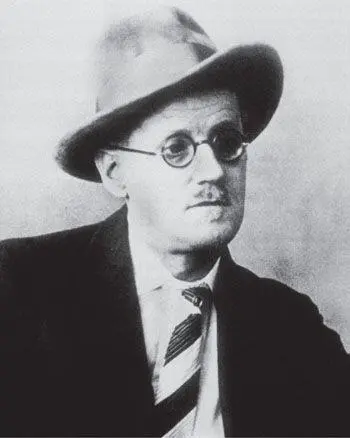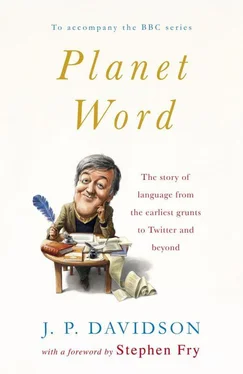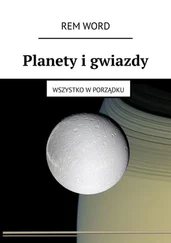David Norris, a senator in Ireland’s parliament, the Taoseaich, is a hugely enthusiastic Joycean and Bloomsday participant. He explains why 16 June was so significant to Joyce and his wife Nora.
‘I didn’t know Joyce, I didn’t know his wife Nora, but I knew all their friends very well and I remember Maria Jolas saying that in the thirties in Paris, when Bloomsday was mentioned, Nora would adopt an insouciant look and she said, “That was the day I made a man out of Jim.” ’
So why is Ulysses lauded so highly? Partly it’s the style, the content, and the language, which is a tour de force that has never been matched since, but it’s also the humanity of the characters. The genius of the book is that Joyce manages to take examples of Homer’s epic adventures of Odysseus (Ulysses in Latin) and find in a single day in Dublin a modern equivalent of the Sirens and the Circe and the Oxen of the Sun. Not only that, but each chapter that represents one of those eighteen adventures has its own colour, atmosphere, smell and linguistic style. The novel contains everything in human life, including public masturbating and use of the c-word that caused it to be banned in the UK until the 1930s. (It was published in Paris in 1922.) It also confronts issues that we now consider to be very urgent and modern, like racism.
The primary beauty of the novel is the hero, Bloom, who is warm, frail, silly and loveable, and yet he’s bullied, treated badly, whispered about behind his back. Another wonderful thing about him is that he’s so at home with the workings of his own body. The first time you meet him he’s having a crap. Joyce describes him shitting and pissing with the same casual exactitude with which he describes him thinking, and it’s all treated as part of a continuum. And the character of Bloom, this extraordinary man who we follow over the course of twenty-four hours, grows and grows in stature and warmth and dignity. He becomes a hero out of the most ordinary material imaginable.
David Norris thinks that part of the genius of the book is in its detail. Joyce didn’t just invent one day, he investigated and researched that one day in minutest detail. So on that 16 June in 1904, there was a particular horse race that was run, and there was a particular jockey and there was a particular time when the odds on the betting were such and such. And he put that in. He mapped that day completely, perfectly, and Norris believes that’s part of the obsession we have with the book to this day. Joyce renders reality with words in a way that a painter can capture the essence of something with brush strokes. Ulysses pioneered what became known as the stream-of-consciousness novel, or in Joyce’s case, the irrational hiccups of human thinking.
Norris adds: ‘Few writers have had more grace and splendour in the way they write. It is just simply beautiful.’ He tells the story of Joyce’s great friend, Frank Budgen, who met Joyce in a café in Zurich one day and found him looking rather pleased with himself.

James Joyce, one of the most original voices in world literature
‘Good day’s work, Joyce?’ said Budgen.
‘Oh yes’, said Joyce.
‘Write a chapter, couple of pages, paragraph, a sentence?’
And Joyce replied, ‘I had the words and the sentence yesterday but I got the order right today.’
As Joyce said himself in Finnegans Wake , it’s about getting ‘the rite words in the rite order’. But what’s probably surprising for those who have been put off reading Ulysses because they think it’s too difficult or obscure (which is true of his last work, Finnegans Wake ) is just how much Joyce uses the rhythms and idioms of the street and pub. He had an uncanny ear for the overheard remark.
Norris laughs. ‘Every kind of Dublin saying, like “the sock whiskey” for sore legs, for instance, is in it. Joyce collected these things, and I often think that subsequent writers must have thought it terribly unfair competition, because Joyce was so terribly greedy; he left nothing behind for other people.’
He was, to be sure, a hoarder of linguistic treasure.
Davy Bryne’s pub is one of the many that grace the pages of the book. Over delicious grilled liver providing an olfactory accompaniment altogether fitting in a novel so keen to that sense, Norris reads out a passage from the opening scene where Bloom is preparing breakfast for his wife Molly.
Mr Leopold Bloom ate with relish, the inner organs of beasts and fowls. He liked thick giblet soup, nutty gizzards, a stuffed roast heart, liverslices fried with crustcrumbs, fried hencods’ roes. Most of all he liked grilled mutton kidneys which gave to his palette a fine tang of faintly scented urine.
Kidneys were in his mind as he moved about the kitchen softly, righting her breakfast things on the humpy tray. Gelid light and air were in the kitchen, but out of doors, gentle summer morning everywhere. Made him feel a bit peckish.
The lilt of David Norris’ accent adds something to the already lyrical cadence of the writing. Does this Irishness lend to the English language another quality which has helped make Hiberno-English writers so successful? He believes it’s because of their discomfort with English. Joyce says, ‘My soul frets in the shadow of your language’ (meaning the English language). Norris cites a book by Father Peter O’Leary, in which he describes hearing two children talking in the period of the famine. One child says to the other, ‘I have no language now, Sheila.’ ‘Why, what have you got?’ she asked him back, and he says, ‘I have only English.’ And English was, of course, the language of emigration, of administration, of logic and calculation and bureaucracy, whereas Irish was the language of creation, the imagination, improvisation. You find this kind of exuberance in the Irish language, and that cannot be eradicated. So it’s as if they’re speaking Irish in their mind and translating it into English; and it’s that exuberant creative side that is the classic Hiberno-English sound.
Norris adds: ‘We tend to be a bit subversive and we’re subversive in language too; and people will deliberately use a form of a word that they know is wrong, but the sound of it appeals to them a little bit more.’
Declan Kiberd and Barry McGovern are sitting in O’Neills Bar on Suffolk Street, a stone’s throw from Trinity College Dublin, where Samuel Beckett studied. Kiberd is Professor of Hiberno-English Literature at neighbouring University College, Joyce’s alma mater, and McGovern is an actor, a stalwart of the Abbey Theatre, who created a wildly successful one-man Beckett show. Over pints of Guinness — what else? — the conversation heads into the rich waters of politics and language. Kiberd is a champion of W. B. Yeats.
‘I would say the greatness of Yeats was that he took up the oral energies of the people just when the Catholic middle class were trying to transcend them and cast them to one side, and he said no, these are beautiful and they’re important. He invented really the modern idea of Irishness and Ireland, and the brilliance of Yeats is that he was both the Irish Shakespeare and its Derek Walcott all rolled into one.’
Kiberd warms to his theme that Yeats was the creator not only of some of the most memorable and patriotic poems, like ‘Easter 1916’, but also of a cycle of plays that invented Ireland in the same way that Shakespeare’s Tudor plays created the idea of England. But he was also postcolonial Ireland’s foremost critic, becoming extraordinarily sceptical of and disillusioned with the very country he’d helped to create. Kiberd is convinced that the Bardic idea is probably an essential role for any great writer: you don’t just praise the chieftain on good days but you are honest enough to speak the truth and say when things are not being done right.
Читать дальше













